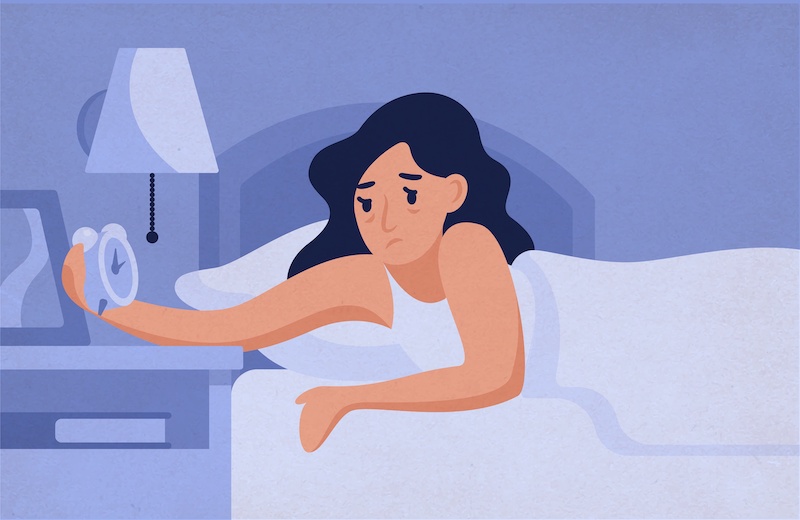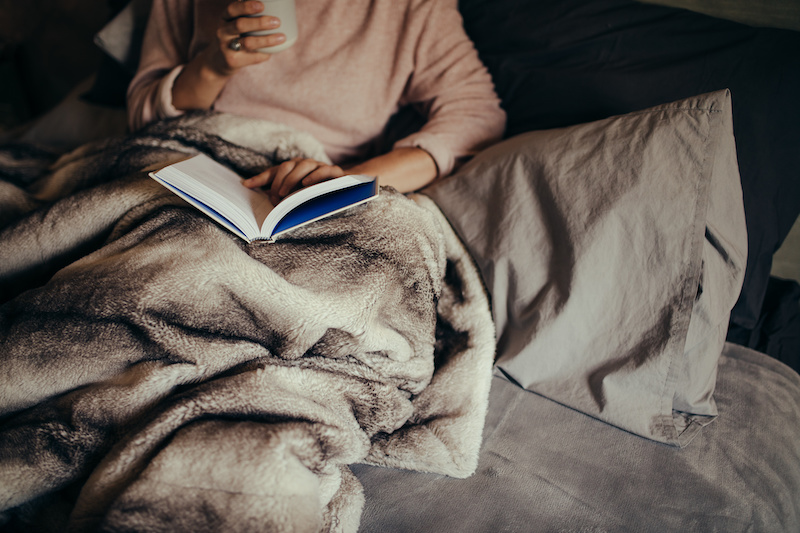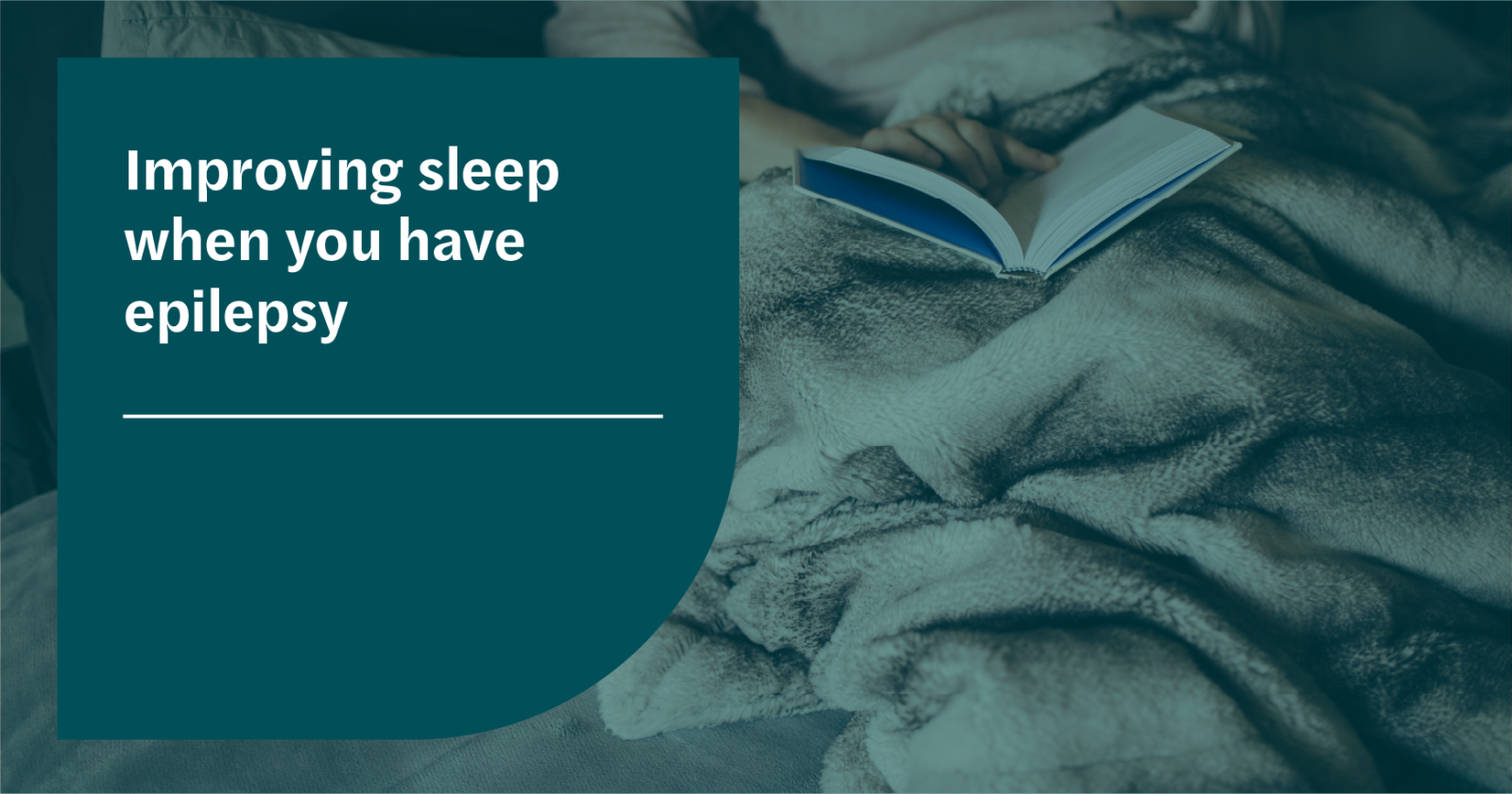We all know that everyone needs to sleep. Without it, we’re not only tired but did you know that lack of sleep puts your health at risk? For the millions of people with epilepsy, this issue is especially important. Sleep disruptions are common for people with epilepsy, which for many is a trigger for seizures. This can create a cycle in which more epileptic events lead to even more sleep disturbance, and so on. Sleep issues are therefore highly important to deal with. Fortunately, there are ways in which people with epilepsy (and everyone) can improve their sleep and their quality of life as a result.
- What’s causing my sleep trouble?
- The relationship between epilepsy and sleep
- Sleep disorders
- What can I do to improve my sleep?
What’s causing my sleep trouble?
There is a wide range of things that have the potential to keep us from getting the sleep we need.
Some environmental factors that negatively affect sleep include:
-
- Using tech before bed — Bright screens like from a TV or smartphone can disrupt your circadian rhythm. This means that it interferes with your natural sleep cycle, often making it difficult to fall asleep at night
- Too many stimulants — Things like soft drinks, coffee, and nicotine can make it more difficult to fall asleep
- Mood/emotional troubles — Anxiety, depression, stress, and other mood disturbances can affect your ability to fall asleep and stay asleep
- Having a varied sleep schedule — Your circadian clock is regulated by your brain, which prefers to have a regular sleeping schedule. Disrupting this schedule by sleeping at different times of the day or night can make it difficult to sleep
- Alcohol consumption — Contrary to popular belief, consuming alcohol leads to poor sleep quality as it disrupts your body’s natural sleep cycle. Excessive alcohol consumption can lead to sleep disorders such as insomnia and sleep apnea — and can make these conditions worse
- Medications — Certain medications can cause drowsiness during the daytime as a side effect, which can disrupt sleep routines
These factors are relatively small and can easily be changed to improve sleep. However, there are some causes that are outside of our control.

[Image description: Cartoon of a person who appears tired. The person is lying in bed and is reaching out to hold an alarm clock on their bedside table.]
The relationship between epilepsy and sleep
There is a complex relationship between epilepsy and sleep. Seizures are caused by misfiring neurons in the brain. The trouble is that the brain also regulates sleep. Because of this, the same brain activity that causes seizures can also have a negative effect on sleeping quality.
There are three main ways epilepsy and sleeping are connected. These are:
-
- Epileptic events during sleep — A significant amount of people with epilepsy have epileptic events exclusively or occasionally during sleep, or soon after they wake up
- Epileptic events triggered by lack of sleep — Some people with epilepsy experience an increase in epileptic events due to losing sleep, or sleeping at irregular times
- Sleep disorders — It is common for people with epilepsy to experience a sleep disorder
Sleep disorders
Sleep disorders are also a factor that is often overlooked in people with epilepsy. That’s because in some cases these disorders are similar to symptoms of an epileptic event. In addition, they can also be easily confused as a side effect of antiepileptic medication.
Common sleep disorders include things like:
-
- Obstructive sleep apnea — A common sleep disorder for people with epilepsy that can lead to chronic sleep deprivation
- Nocturnal panic disorder — A disorder that commonly co-occurs with panic disorder, causing people to wake suddenly in a state of panic
- Parasomnias — A disorder associated with general sleep disturbances on a regular basis
- Restless leg syndrome — A disorder that causes a strong urge to move one’s legs or to feel uncomfortable when one’s legs are at rest

[Image description: A person sitting in bed. They are reading a book and holding a cup of tea.]
What can I do to improve my sleep?
Improving sleep quality is sometimes just a matter of adjusting one’s schedule and habits.
In the case of certain sleeping disorders, more substantial treatment methods may be required. This may include things like using melatonin supplements, bright light therapy, or visiting a sleep specialist. If you suspect you may be experiencing sleep disturbance as a side effect of your medication, you may want to talk to your doctor about switching medications.
Fortunately, lots of people find ways to improve their sleep by making a few simple changes.
A few simple things you can do to help yourself sleep easier include:
-
- Following a sleep schedule — Try to fall asleep and wake up around the same time every day. This will help set your circadian clock, allowing your mind and body to sleep easier
- Make sure you’re sleeping long enough — Many people, unfortunately, do not get the right amount of sleep they need to function their best. Adults need between about 7 to 9 hours of sleep a night to be fully rested
- Create a better sleeping environment — Help your brain and body feel comfortable by providing the right environment to sleep in. Be sure to keep your room dark. This includes making sure any screens such as a TV or smartphone are turned off. Also, be sure to make yourself comfortable. It may seem like a simple thing, but simply ensuring that you’re able to relax can be one of the most important parts of getting great sleep
- Settle in for the night — Try to avoid any strenuous activity before bed and give yourself time to unwind. Also avoid eating, and consuming caffeine, tobacco and/or alcohol too close to bedtime. Getting into a relaxed state an hour or so before sleeping is great preparation for a restful night. It may help to develop relaxing habits such as taking a bath or meditating before you go to bed
Improve your sleep and your quality of life
The relationship between epilepsy and sleep may be a difficult one to understand, but it can be improved. Following this advice is a great start to getting better sleep and improving your everyday life.
